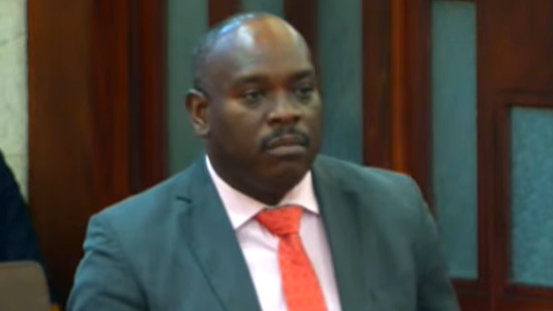The new amendments to the Sexual Offences Act, which criminalise grooming and protect minors from sexual activity, may not be sufficient to address the island’s deeply rooted cultural acceptance of such behaviours, according to women’s and children’s advocate Dr Marsha Hinds Myrie.
Speaking to Barbados TODAY, Dr Hinds Myrie welcomed the legal changes as “undoubtedly a step in the right direction” but stressed that a “major cultural shift in public attitudes is necessary to curb such behaviours, which have become far too common in society for too long”.
The Sexual Offences (Amendment) Act, introduced by Attorney General Dale Marshall and passed in the House of Assembly on Tuesday, introduces new protections for minors, defines the new offence of grooming, and criminalises acts that expose children to sexual activity.
Dr Hinds Myrie emphasised the need for a comprehensive approach combining legal reforms with educational initiatives.
“I agree with the AG that there is a way in which grooming is [unfortunately] very culturally accepted so that a law alone against grooming will not fix that,” she said.
“Along with the law, what we need is a cultural re-engineering such that people go through educational processes and they go through cultural change to then understand that grooming is detrimental, it is harmful, [in] the various ways that it happens. I think if we put the cultural piece together with the legal piece, then we are on our way to solving the problem,” she said.
The former head of the National Organisation for Women warned that relying solely on legislation would be insufficient: “To just put in dissuasion in the law alone is not going to fix it because we know that we have perhaps a plethora of law in Barbados that lives in the books only, and then when we try to connect it from the book into the lives of individuals, we have difficulty achieving that.”
She also expressed concern over the definition of a minor as someone under 16, arguing that this approach could leave older youths vulnerable.
“An individual who is 18 years old is still in a period of youthfulness and may still be in a position where they can be taken advantage of, with respect to certain types of behaviours and societal trends,” she explained, citing Canadian legislation as an example of a more nuanced approach.
Responding to the government’s announcement that two academics would research the viability of a sexual predator registry, Dr Hinds Myrie was sceptical: “Commission of inquiries and academic reports are the hills upon which things go in Barbados to die.”
She highlighted the urgent need for a family court system to address the backlog of cases involving sexual abuse of minors, particularly those compounded by vulnerabilities such as poverty or disability.
Dr Hinds Myrie noted that calls for such a framework have been ignored for decades.
“Since 1992, we have been trying to establish a family court and in 2024 we are still just talking about it,” she said.
“I raise the issue of family court in the context of sexual offences because the reality is . . . a lot of the sexual abuse that happens in Barbados is not what we call stranger danger, it is danger at the hands of people who are known to the family unit of the person who has been endangered or is it in a position of authority in some way connected with that family. Since 1992, we have been collecting the evidence to show us and to make clear why something like a family court in Barbados is important.”
The post New anti-grooming law insufficient to protect youth appeared first on Barbados Today.


